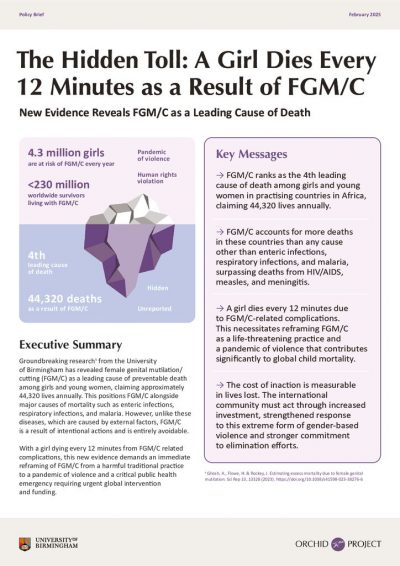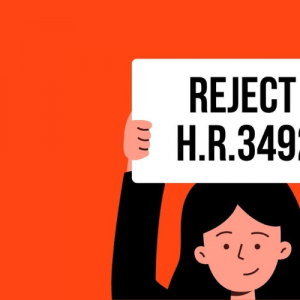Every 12 minutes, a girl dies as a direct result of female genital mutilation/cutting (FGM/C). That’s 5 girls in an hour, 120 girls a day, 44,320 girls every year. These are not just numbers—they represent real lives, dreams and futures lost to a practice without a medical purpose.
This International Day of 0 Tolerance for FGM, together with the University of Birmingham, we call for the international community to act through increased investment and stronger commitment to eliminating this practice. A new study by the University brings these stark statistics to our attention and requires FGM/C to be reframed as a pandemic of violence that contributes significantly to global child mortality. And as the theme of this year suggests, we must step up the pace to end this practice, because no lives should be cut short by FGM/C and no one should be subjected to this practice.
To find out more about why FGM/C related deaths are unreported, read our policy brief with lived stories from activists we work with.
Alongside our video to mark this day, we have created a policy brief with the University of Birmingham, calling on the immediate reframing of FGM/C from a harmful traditional practice to a pandemic of violence and a critical public health emergency requiring urgent global intervention and funding.
To make sure that FGM/C requires the attention it deserves, please share our video and policy brief with recommendations for key stakeholders on how we can create stronger elimination efforts and #Unite2EndFGM.




